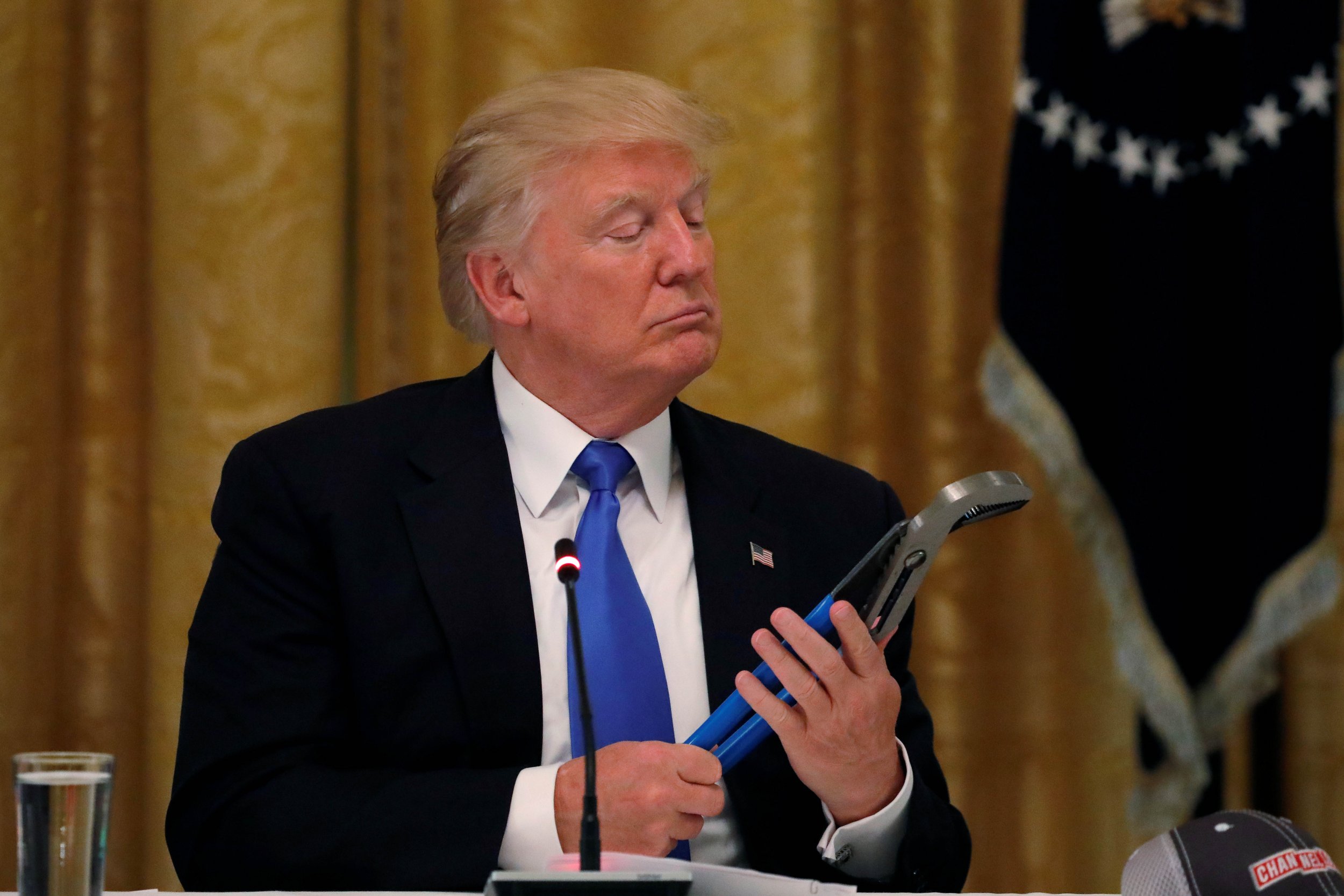
President Donald Trump's lawyers are examining his powers to pardon himself, his aides, and family members, prompting questions over the ability of a president to invoke such a power.
On Thursday the Washington Post reported that a source close to Trump said the president asked his aides about the extent of his powers to forgive legal offenses. Another source said his legal team was on it. The report follows damaging revelations last week that Trump's son agreed to meet with Russians after being told they were part of a Kremlin plot to help his father win the presidency.
While the president does hold powers to pardon aides, legally, he cannot pardon himself according to legal experts and memos written by President Richard Nixon's Office of Legal Counsel days before Nixon resigned in the Watergate scandal in 1974.
The memos stated that "under the fundamental rule that no one may be a judge in his own case, the President cannot pardon himself."
Trump does have a potential out that would involve Vice President Mike Pence stepping in as acting president. Even if Trump did use that, any aides he pardons can still be legally compelled to testify against him without the protection of the Fifth Amendment, experts say.
News of White House efforts to legally insulate itself followed reports that special counsel Robert Mueller and FBI investigators are looking at Russian purchases of apartments in Trump buildings and examining the Trump family finances. Trump warned Mueller against expanding his investigation in this direction during an interview with The New York Times Wednesday.
These probes are part of the Russia investigation looking at Moscow's efforts to interfere in the 2016 U.S. election and tilt it toward Trump. Investigators are also examining whether the Trump campaign and the president's associates colluded with Russia in this.
Read more: Trump's lawyers are trying to undercut the Mueller Russia investigation, say reports
While the president has the power to grant pardons, it is "important to remember that the pardon power is legally—but not politically—absolute," wrote Steve Vladeck, a national security law professor at the University of Texas School of Law, on Twitter Thursday.
Important to remember that the pardon power is legally—but _not_ politically—absolute. Q, as ever, is how congressional Republicans respond. https://t.co/7ktfcHOuQ0
— Steve Vladeck (@steve_vladeck) July 21, 2017
The real question, Vladeck said, "is how congressional Republicans respond" and whether they continue to back the president. Republicans control both the House and Senate, giving them the power to impeach the president—a legal process that could remove Trump from office.
The president's pardoning power only extends to federal offenses. If Trump pardoned his aides and family members, they could be called to testify without the protection of the Fifth Amendment—this amendment means defendants can avoid giving testimony that incriminates themselves.
In a message to Trump on Twitter posted Friday, Harvard Law School constitutional law professor Laurence Tribe warned the president that "anyone you pardon can be compelled to testify without any grant of immunity, and that testimony could undo you." This testimony could be used to back up an impeachment case against Trump.
One option remains according to the memo drawn up by Nixon's legal counsel. Under the Twenty-Fifth Amendment of the Constitution, the President could declare "that he was temporarily unable to perform the duties of the office."
Vice President Mike Pence would then become Acting President "and as such could pardon the President," the memo reads. "Thereafter the President could either resign or resume the duties of his office."
It remains an open question whether a Republican-controlled Congress would bring any articles of impeachment against Trump.
Uncommon Knowledge
Newsweek is committed to challenging conventional wisdom and finding connections in the search for common ground.
Newsweek is committed to challenging conventional wisdom and finding connections in the search for common ground.
About the writer
Graham Lanktree covers U.S. politics for Newsweek. He is based in London and frequently appears as a contributor on BBC ... Read more
To read how Newsweek uses AI as a newsroom tool, Click here.








